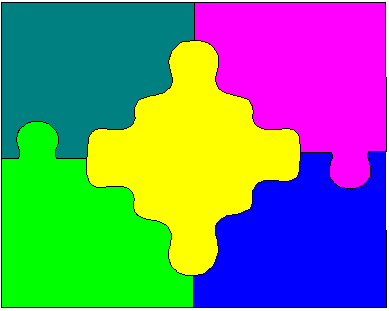|
| The Ninth Street Center |
|
"The existence of two distinct types is actually a fact
that has long been known: a fact that in one form or another has
dawned upon the observer of human nature or shed light upon the
brooding reflection of the thinker . . . .
-- Carl Gustav Jung, 1924 |
Introversion and Extroversion

The idea that not all individuals are constructed on the same ground plan -- that there might be two human natures instead of one -- has haunted philosophy since the Greeks. Indeed, what if there were three, or more, basic character types?

The literature of modern psychology is rife with amusing speculations in this area, but little that can be called serious. The classic exceptions are James and Jung, both covered in the bibliography given below. You can also see an outline of Paul's basic semantics, a glossary of the terms that Paul uses, a timeline of polarity theory, and a selection of interesting quotations from historical sources, by clicking on the following links.
|
| See some quotations about psychological polarity |
|
| See a timeline of polarity awareness |
|
| See a bibliography of psychological polarity |
|
| Read about Paul's writing style |
|
| Read about Paul and William James |
|
| See a thumbnail sketch of Paul's semantics |
|
| See a Rosenfels glossary |
|
| See a Rosenfels bibliography |
[D:\dh\web\NSC\3\HTP\Polarity.htp (43 lines) 2007-01-15 05:51 Dean Hannotte] | ||||||||